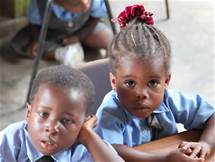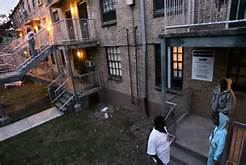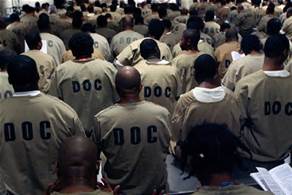“I don’t think there is
a white privilege.”
– House Speaker Nicholas Mattiello
Rhode Island’s Democratic Speaker on race: “I don’t think anybody in society views any particular nationality as having any privilege over any other.”
This denies the experiences of many minorities. They know whites have greater privileges in education, employment, housing, banking and criminal justice.
Hardships perpetuate one another: Poor education leads to poor job prospects—and these impoverish housing opportunities. Payday lenders scam often poor minorities who also suffer increased arrests, bail, sentences and fines.
 Rhode Island’s fourth-grade reading proficiency is 48 percent for whites; 18 percent for blacks; 17 percent for Latinos. Should we blame minority kids? No, students from low-income families score 19 percent, so poor minorities rank far lower than students from white families with better schools.
Rhode Island’s fourth-grade reading proficiency is 48 percent for whites; 18 percent for blacks; 17 percent for Latinos. Should we blame minority kids? No, students from low-income families score 19 percent, so poor minorities rank far lower than students from white families with better schools.
Financial health varies widely by race: The Census Bureau reports black median income for 2013 is $34,600; Latino, $41,000; white, $58,300. Lasting low income affects resources: Pew Research Center reports 2013 median household wealth for blacks is $11,000; Latinos, $13,700; whites, $141,900. The wealth of one white family equals ten Latino or thirteen black families.
 White privilege is powerful. Minority disadvantages are painful—and keep accumulating.
White privilege is powerful. Minority disadvantages are painful—and keep accumulating.
Consider housing. Poor neighborhoods are often minority while upscale neighborhoods are overwhelmingly white. Public housing projects built in poor areas preserve segregation.

Also, mortgage discrimination continues long after redlining. For example, though whites had similar credit ratings, Wells Fargo steered 4,000 blacks and Latinos into subprime mortgages and charged 30,000 minorities increased fees averaging more than $2,500. Predatory mortgage brokers often targeted minorities and schemed foreclosing quickly on the first late payment.
The cycle of poverty is vicious: Poor housing reflects poor income, and these deficits lead to children’s destitute education. Mass incarceration often penalizes offenders’ families with costly travel expenses, bail, attorney’s fees, and phone surcharges. Payday lenders’ outrageous tactics intensify poverty. Thus, poor communities remain perpetually impoverished.

Mattiello affirms the adage, “high tide lifts all boats,” but this comparison fails: While the rich get richer, everyone else’s economic boat has not lifted for 30 years. Indeed, Financial Times reports income distribution so favors the wealthy that, if 1979 levels held, the bottom 80 percent of families would now earn another $11,000 a year.
Could your family use another $11,000 each year? Now consider the even greater loss to many minorities who, compared to whites, already have immense disparities in income and wealth.
Mattiello states, “To a certain extent we have to give particular attention to the minority community,” but also asserts some don’t “take advantage” of opportunities—“and that’s something that I quite frankly don’t understand.” But the disadvantage is understandable: Equal opportunity is a fiction.
It’s not that only some minorities take advantage of opportunities. Instead of implying victims of systemic discrimination are callous or lazy, we must accept that opportunities available to whites are often unavailable to minorities. Need more convincing?
A 2002 Harvard study found whites and blacks, controlled for similar qualifications, had vastly different employment prospects. The callback rate from job applications for whites was 34 percent; blacks, 14 percent. Moreover, whites with criminal records received callbacks 17 percent of the time; blacks, 5 percent.
This is shocking: Whites with criminal records received more callbacks than blacks who committed no crimes.
 The Harvard study confirmed 1994 results by Sociologist Marc Bendick, Jr., et al.—but the disparity between blacks and whites without a record was 24 points, not 20.
The Harvard study confirmed 1994 results by Sociologist Marc Bendick, Jr., et al.—but the disparity between blacks and whites without a record was 24 points, not 20.
Many arrested—but not convicted—are also treated as criminals. Harvard study authors indicate these unjust employment denials afflict millions of low-income Americans, especially people of color.
Blacks and Latinos need more than a high tide of nearly nonexistent opportunity: Mass incarceration must be remedied; banking scams need reform; and enormous gaps in income, wealth, education and housing require ‘affirmative action.’
Let’s hope Speaker Mattiello opens his eyes: The evidence for white privilege is overwhelming.
Rev. Harry Rix has 60 articles on spirituality and ethics, stunning photos, and 1200 quotations for reflection available at www.quoflections.org. ©2015 Harry Rix. All rights reserved.

